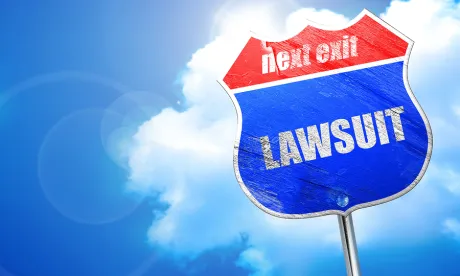Plaintiff’s lawyers trying to capitalize on the chaos created by the COVID-19 pandemic have filed class action lawsuits against hospitality and leisure industry companies, like hotels, timeshares, fitness and social clubs, amusement parks, ski resorts, and even homeowner’s associations, among others, seeking refunds of monthly fees and dues based on alleged lack of access or use of facilities and amenities caused by a business’ compliance with state and local operations restrictions and agency guidelines.
Most of the cases filed to date have focused on breach of contract, tort and statutory consumer protection law theories of liability and recovery.
Unfortunately, there is reason to anticipate that this activity will continue, and potentially even escalate in some states. Companies that charge monthly membership dues or fees should be prepared to respond quickly, decisively and strategically if their business becomes a target for a COVID-19 related class action.
This article offers a litigation checklist with a high-level look at some important procedural and strategy considerations that may apply on a case by case basis for defending against these types of class claims. Depending on the specific facts at issue, the options presented in this checklist, where available, may factor into an approach for companies to use in working with counsel to effectively manage and address a class action related to COVID-19.
Procedural and Venue Considerations
-
Removal to Federal Court: If the plaintiff filed the case in state court, consider removal to federal court under the Class Action Fairness Act (“CAFA”), or possibly traditional diversity jurisdiction or federal question jurisdiction. Because COVID-19 related claims are typically being asserted on behalf of all members or customers, the CAFA requirements of minimal diversity, at least 100 class members and greater than $5 million in controversy for federal jurisdiction are often satisfied. To the extent an arbitration agreement exists, a federal court venue is preferable for seeking to compel arbitration under the Federal Arbitration Act.
-
Arbitration Provision with Class Action Waiver: Is there an agreement to arbitrate that can serve as a basis to compel arbitration (i.e., user agreement, membership agreement, service contract, online enrollment form)? Most asserted COVID-19 related claims targeting the hospitality and leisure industry arise from or involve providing services or other performance pursuant to a consumer contract, which often contain an arbitration provision with class action waiver. Arbitration agreements with class action waivers are enforceable under the Federal Arbitration Act. See AT&T Mobility v. Concepcion, 563 U.S. 333 (2011).
-
Choice of Venue: If arbitration is not available, is there a consumer contract with a choice of venue provision or forum selection clause that governs where any litigation is to proceed? Consider whether a motion to change or transfer venue to a more favorable forum exists based on contract or some other ground, like the common law doctrine of forum non conveniens. See Atlantic Marine Construction Co. v. U.S. District Court for the Western District of Texas, 571 U.S. 49 (2013); see also 28 U.S.C. 1404(a).
-
Choice of Law: A related contract consideration is whether a choice of law provision exists that dictates what law applies? If so, does that choice of law provision cover contract based claims and non-contract based claims? Depending on the wording of the choice of law provision, there may be a question of what law applies to non-contract based claims, like tort or statutory consumer protection law claims. Note also that the law of the forum state where a class action is venued does not necessarily govern the claims of all class members. See Phillips Petroleum Co. v. Shutts, 472 U.S. 797 (1985).
-
Specific Jurisdiction Challenge: Under Bristol-Meyers Squibb v. Superior Court, 137 S. Ct. 1773 (2017), district courts are precluded from exercising specific jurisdiction over the claims of non-resident plaintiffs in state mass tort actions unless the plaintiff can show sufficient contacts with the forum and the facts giving rise to the plaintiff’s claim. Although courts in different jurisdictions are split on the application of Bristol-Myers to nationwide class actions, depending on the venue, a challenge to specific jurisdiction for out-of-state plaintiffs is worth consideration at the early litigation stage.
Defense Strategy Considerations
-
Lack of Standing: Did the named plaintiff suffer an injury in fact or harm sufficient to confer Article III standing? See Lujan v. Defenders of Wildlife, 504 U.S. 555 (1992). Depending on the service or performance at issue, the named plaintiff (and other consumers) may not have sustained cognizable injury or harm because of actions taken by the defendant to mitigate damages, provide reasonable alternatives or substitutions for performance, make reparation, or postpone performance (as opposed to cancelation) for a later time when not prohibited or restricted, or when otherwise more feasible to do.
-
No Breach of Contract: Depending on the language of a consumer contract, an argument may exist to support a showing of no breach if an agreement allows for reasonable modifications, substitute performance or the ability to make reparations during the contract term, which was done or offered by the non-performing party.
-
Class Certification: The details of a defense plan to defeat class certification will depend on the case-specific facts. However, with COVID-19 related class claims, it is likely that the most effective certification defense will focus on differences within the proposed class concerning contract terms, performance, derived benefits, causation and injury, harm or damage, and the existence of state and local orders or directives or other circumstances affecting the defendant’s ability to perform. Variation among putative class members will shape arguments related to the Rule 23 requirements of predominance and typicality.
-
Force Majeure: Does the consumer contract contain an applicable force majeure provision? The use by a nonperforming party of a force majeure provision is contract language specific, and turns on the particular facts at issue. Accordingly, the first step is to determine whether a COVID-19 related event qualifies as force majeure under the contract. If so, was nonperformance by the defendant foreseeable and able to be mitigated by the plaintiff, and is performance by the defendant actually impossible, such that it is excused. State and local government imposition of prohibitions and restrictions on business operations, travel, venue capacity, gatherings and movement in general should be considered to assess whether the circumstances in a particular case give rise to a qualifying event for force majeure.
-
Frustration of Purpose: Where a force majeure defense is not available, the common law defense of frustration of purpose may exist when an event unforeseen at the time of contracting undermines the parties’ principal purpose for entering into a contract such that any reasonably available means to perform is materially different from what the parties contemplated when they formed the contract. One consideration when asserting this defense is that if successful, the contract is terminated, which, depending on the situation, may not be a desirable outcome.
-
Impossibility or Impracticability of Performance: A related, but different, common law defense to frustration of purpose is the doctrine of contract impossibility or impracticability. Contract impossibility occurs where performance of a contract duty is excused based on a change in circumstances, which the parties did not anticipate at the time of contracting, that makes performance of the contract literally impossible. Given the difficulty of proving actual impossibility, many courts have shifted to an impracticability standard where contemplated performance of a duty is excused on a showing that it is unreasonably difficult or excessively costly to perform, although possible, because of an unforeseen change in circumstances.
-
Change of Law: A change in the law may render a valid contract unenforceable as illegal if it is not possible to achieve the object of the contract without violating a law. Recent state and local orders, guidelines or directives in effect in some jurisdictions to address the COVID-19 pandemic may, in certain instances, require compliance that is inconsistent with the contract objective or performance. Because these types of public policy laws apply immediately based on overriding public-interest considerations, many businesses are not able to comply while at the same time providing contracted-for services or other performance that was contemplated at the onset.




 />i
/>i
